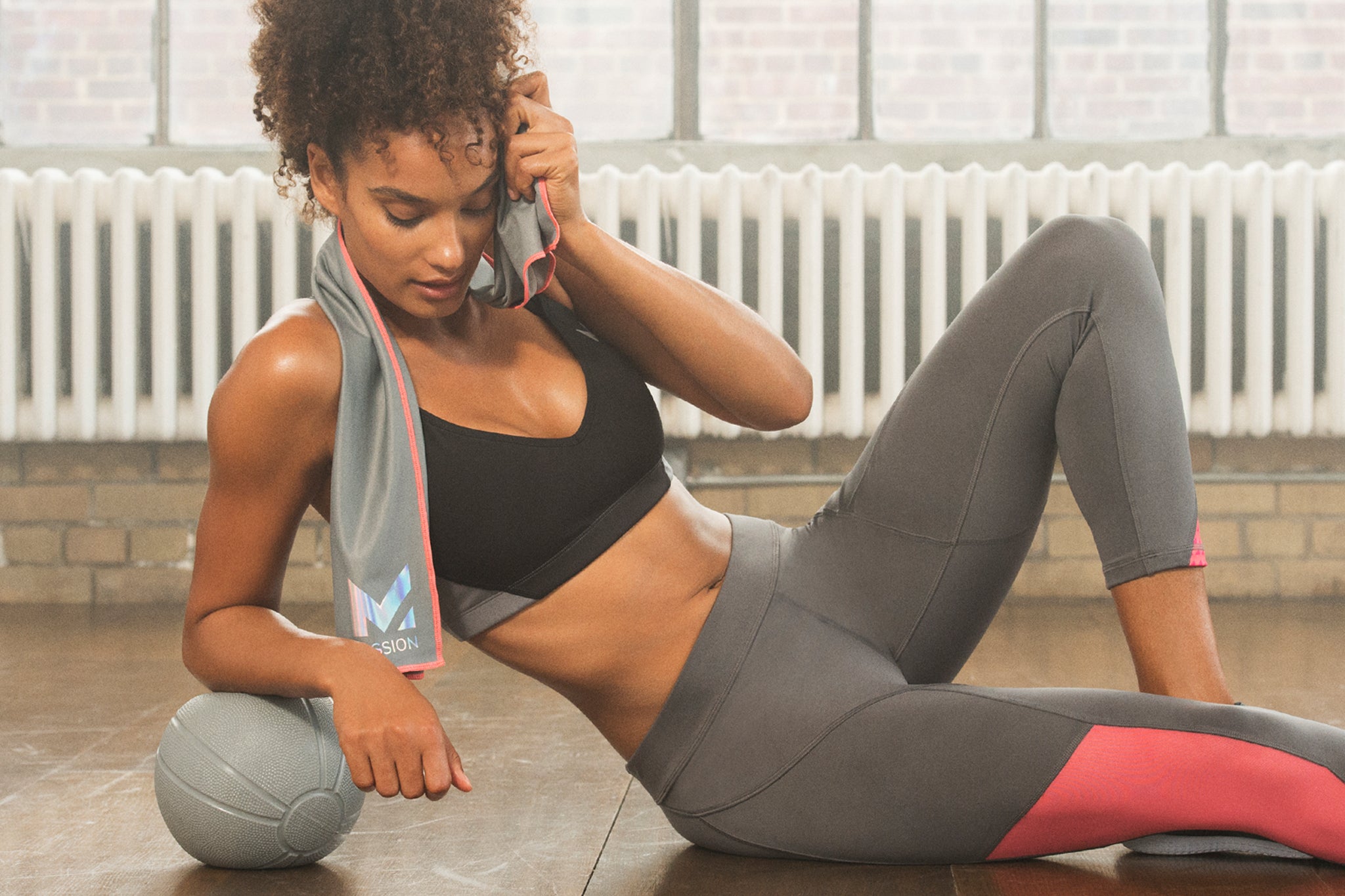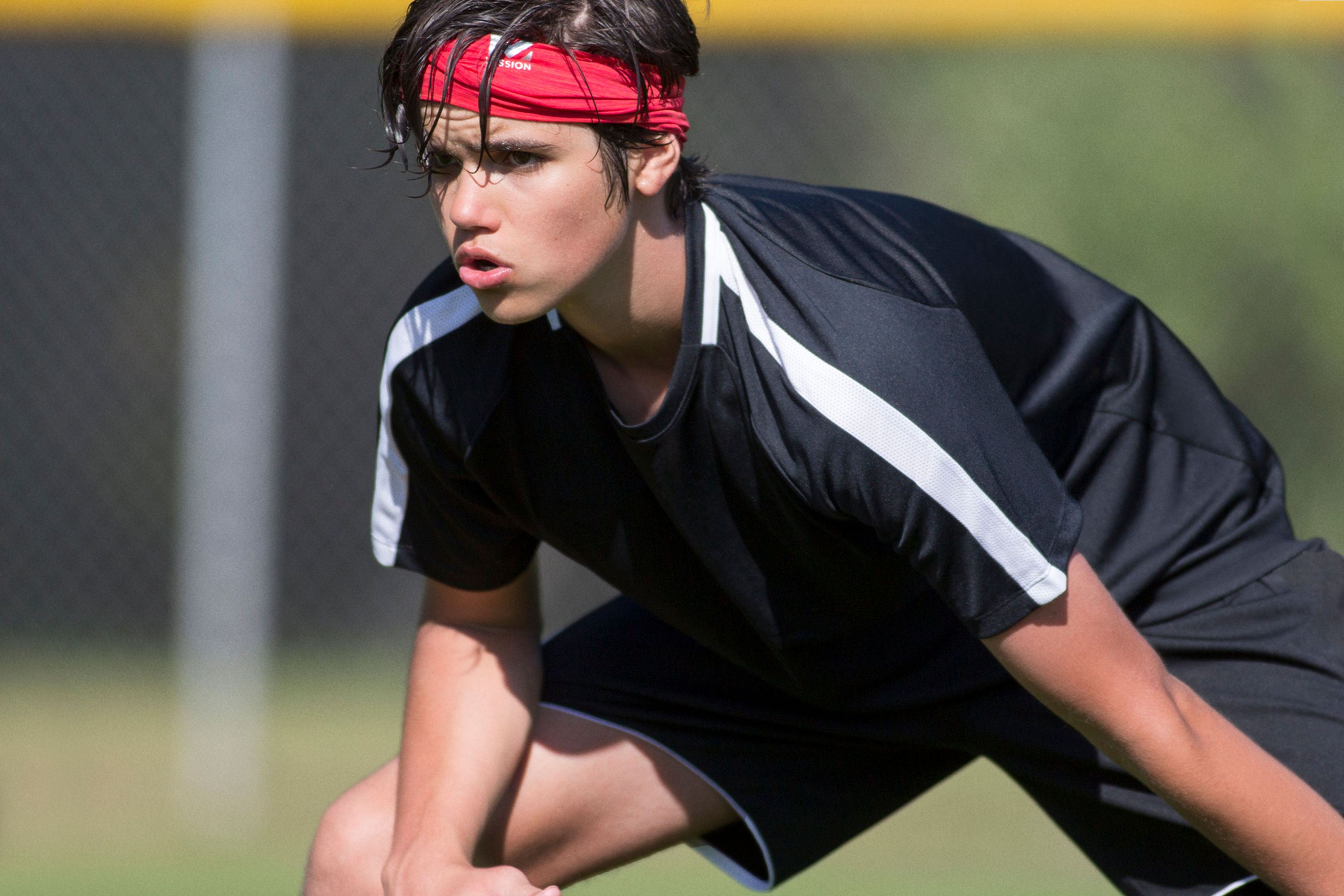From Hot Yoga to Summer Running: Safety Tips for Exercising in the Heat

When we exercise, our body temperature increases and we sweat as a way to cool down. But when we’re outside on a hot day or inside a hot room, it’s not as simple. From understanding the effects of heat and humidity to learning a few helpful ways to keep cool, here’s everything you need to know about exercising in the heat.
UNDERSTANDING HOW HEAT AFFECTS YOU
The first and most important thing to realize is how heat affects your body. For one, working out in warm weather demands more energy than in cooler temperatures, which can quickly lead to fatigue. The temperature is not always something people take into consideration, but it does have a considerable effect on you and your performance. The heat simply puts more strain on your muscles, your lungs, and your circulation which can cause a rise in body temperature. When your core body temperature gets too high while exercising, the risk for health issues like heat stroke also increases.
BECOMING AWARE OF HEAT-RELATED ILLNESSES
Exercising in hot temperatures causes a combination of increased stress on the body and dehydration, which can lead to seriously harmful effects like overheating, heat cramps, or heat stroke. Heat-related illnesses range from mild to more serious, especially if left untreated.
Heat cramps can result from exercise and they usually feel like a spasm or strain in the muscles. Though body temperature may not be affected, heat cramps are painful and can occur from exercising in higher temperatures. Fainting is another problem that can occur as an effect of the heat. Usually, it starts with a feeling of lightheadedness that results in a collapse. While neither of these require major medical attention, they are harmful to your health and can be avoided with a few precautionary measures. More on that, later.
Another heat-related issue is heat exhaustion, which happens when your temperature gets too high. Symptoms of heat exhaustion include nausea, headache, and fainting. It can lead to the much more harmful condition known as heat stroke. Exertional heat stroke occurs when the core body temperature is greater than 104ºF. Heat stroke is a medical emergency which requires immediate attention to prevent grave danger like brain damage or even sudden death. If you know what kind of heat illness you are experiencing, you can make sure to get the right kind of treatment.
RECOGNIZING THE SYMPTOMS
If you’re planning to exercise in the heat, it is essential that you keep an eye on what is happening to you and your body. If you start to feel like something isn’t right, you may need to take a break from your hot-weather exercise or find an alternative. Don’t ignore the symptoms because your condition could get worse, and you could end up in the hospital.
Some of the signs that you are experiencing heat exhaustion or heat stroke are cramps, nausea, vomiting, fatigue, headache, dizziness, confusion, increased heart rate, and of course sweating profusely. Stop your activity and hydrate as soon as you start to develop any of these symptoms. Remove any excess clothing or gear that might be keeping you warm. Go somewhere to cool off like an air-conditioned room or chilly car. Or use a cooling towel to help lower your body temperature. The idea is to get cool, hydrated, and back to normal as quickly as possible. If things get worse, then you should seek medical attention immediately.
GETTING ACCLIMATED
An important facet of heat safety is acclimatization. If you’re going to exercise in higher temperatures than you’re used to, give your body time to adjust. You can’t expect to jump into an intense workout schedule right away. Take it easy at first and gradually increase the intensity and length of your exercise routine. It can take up to two weeks for your body to adapt to the warmer temperatures, so take your time to avoid harmful heat injury.
SCHEDULING WHEN TO WORK OUT
Be mindful of the conditions in which you are exercising. Because humidity makes it more difficult for sweat to evaporate, this can make it harder to cool down. If a particularly scorching or humid day is in the forecast, you might want to skip the outdoor run or workout and opt for something like swimming.
You must also consider the time of day and how that will affect the temperature. Try to exercise in the early morning or evening to avoid the hottest parts of the day. This is one simple way to mitigate the risks of heat illnesses and to help ensure that you stay cool while working out.
WEARING THE RIGHT THING
Exercising in hot temperatures requires the right attire to help you cool off. Lightweight and loose-fitting clothes can help sweat evaporate. There are also fast-drying shorts and leggings that are designed to help optimize your performance while cooling you off at the same time. And, if you’re exercising outdoors, keep yourself protected from the sun with a hat and sweat-proof sunscreen.
STAYING HYDRATED
Another important way to avoid heat-induced illness is to drink plenty of fluids. Dehydration is one of the key causes of heat exhaustion and heat stroke. Plus, the more water you drink, the more you sweat, which is another great way your body keeps itself cool. Don’t wait till you are thirsty. If you’re working out in hotter temperatures, stay hydrated with water or sports drinks.
BEING ADAPTABLE
The number one way to avoid heat stroke and other problems is to be willing to change your plans. Exercising in hot temperatures has many risks so try to have a backup plan. Be aware of the weather forecast, and plan your workouts accordingly. If the temperature or humidity are too high, consider exercising indoors, cycling, or swimming. And the most important thing is to listen to your body. If you start to feel overheated, stop immediately and let yourself cool off.
With just a few heat safety measures and precautions, you can easily minimize the risks of exercising in hot temperatures.
22 comments
-
Fidum on
cialis medication cialis roter kopf buy cialis canada / cialis 20mg tablets
-
Didhof on
cialis best price india cialis without prescription overnight cialis drug in india
-
Didhof on
cialis bestellen niederlande cialis no prescription needed cialis incinta
-
Didhof on
cialis dor no corpo cialis no prescription needed cialis viagra differenza



cialis price at walmart cialis puede causar impotencia cialis experience / cialis generic reviews